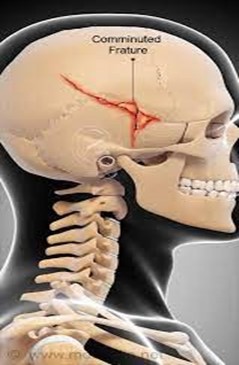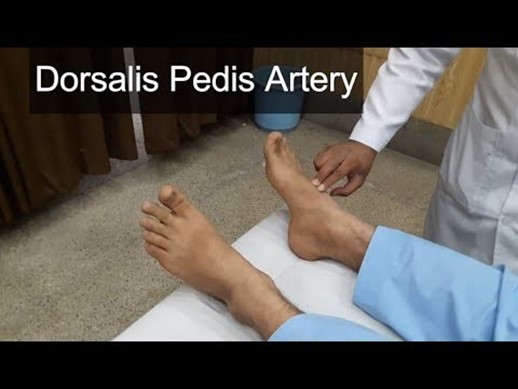A nurse is caring for a client admitted with a skull fracture.
Which of the following assessment findings should be of greatest concern to the nurse?
Glasgow Coma Scale score changes from 14 to 9.
WBC count changes from 9,000 to 16,000/mm.
Pulse pressure changes from 30 to 20 mm Hg.
Bilateral pupil diameter changes from 4 to 2 mm.
The Correct Answer is A

A decrease in the Glasgow Coma Scale (GCS) score indicates a decline in the client’s level of consciousness and neurological function.
This can be a sign of increased intracranial pressure or other complications related to the skull fracture.
Choice B is incorrect because an increase in WBC count may indicate an infection, but it is not as concerning as a decrease in GCS score.
Choice C is incorrect because a change in pulse pressure may indicate changes in cardiovascular function, but it is not as concerning as a decrease in GCS score.
Choice D is incorrect because a change in pupil diameter may indicate changes in neurological function, but it is not as concerning as a decrease in GCS score.
Nursing Test Bank
Naxlex Comprehensive Predictor Exams
Related Questions
Correct Answer is D
Explanation
The nurse should palpate the dorsalis pedis pulse.

This is to assess for peripheral neurovascular dysfunction, which is a potential complication of a tibial fracture.
Choice A, wrapping sterile gauze on the sharp point of the pins, is not an answer because it is not mentioned in the search results as an intervention for a client with an external fixator for a tibial fracture.
Choice B, adjusting the clamps on the fixator frame, is not an answer because it is not mentioned in the search results as an intervention for a client with an external fixator for a tibial fracture.
Choice C, maintaining the affected extremity in a dependent position, is not an answer because it is not mentioned in the search results as an intervention for a client with an external fixator for a tibial fracture.
Correct Answer is D
Explanation
“Flush the catheter manually with 0.9% sodium chloride.” The client is receiving continuous bladder irrigation following a transurethral resection of the prostate and reports bladder spasms and decreased urinary output.
These symptoms may indicate that the catheter is blocked with blood clots.
Flushing the catheter manually with 0.9% sodium chloride can help to remove any blood clots and restore urinary output.
Choice A is not the correct answer because removing the indwelling urinary catheter would not address the underlying issue of blood clots blocking the catheter.
Choice B is not the correct answer because decreasing traction on the catheter would not address the underlying issue of blood clots blocking the catheter.
Choice C is not the correct answer because while ibuprofen may provide some pain relief, it would not address the underlying issue of blood clots blocking the catheter.
Whether you are a student looking to ace your exams or a practicing nurse seeking to enhance your expertise , our nursing education contents will empower you with the confidence and competence to make a difference in the lives of patients and become a respected leader in the healthcare field.
Visit Naxlex, invest in your future and unlock endless possibilities with our unparalleled nursing education contents today
Report Wrong Answer on the Current Question
Do you disagree with the answer? If yes, what is your expected answer? Explain.
Kindly be descriptive with the issue you are facing.
